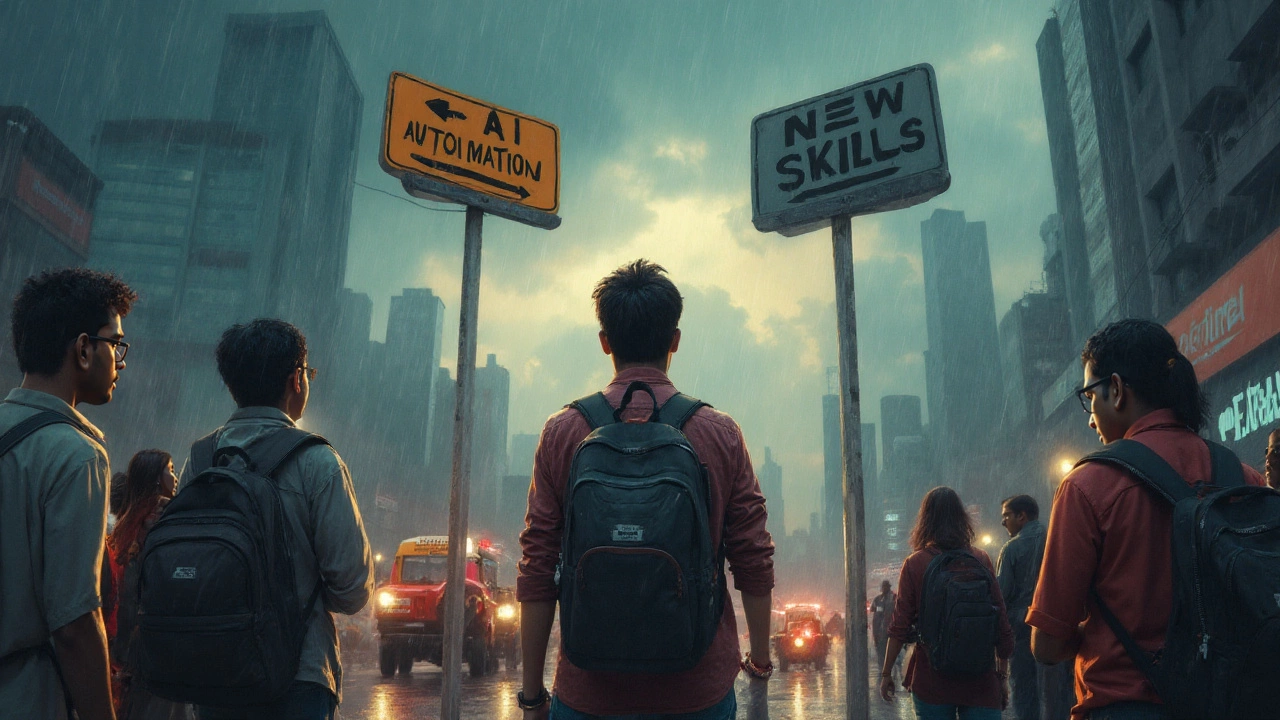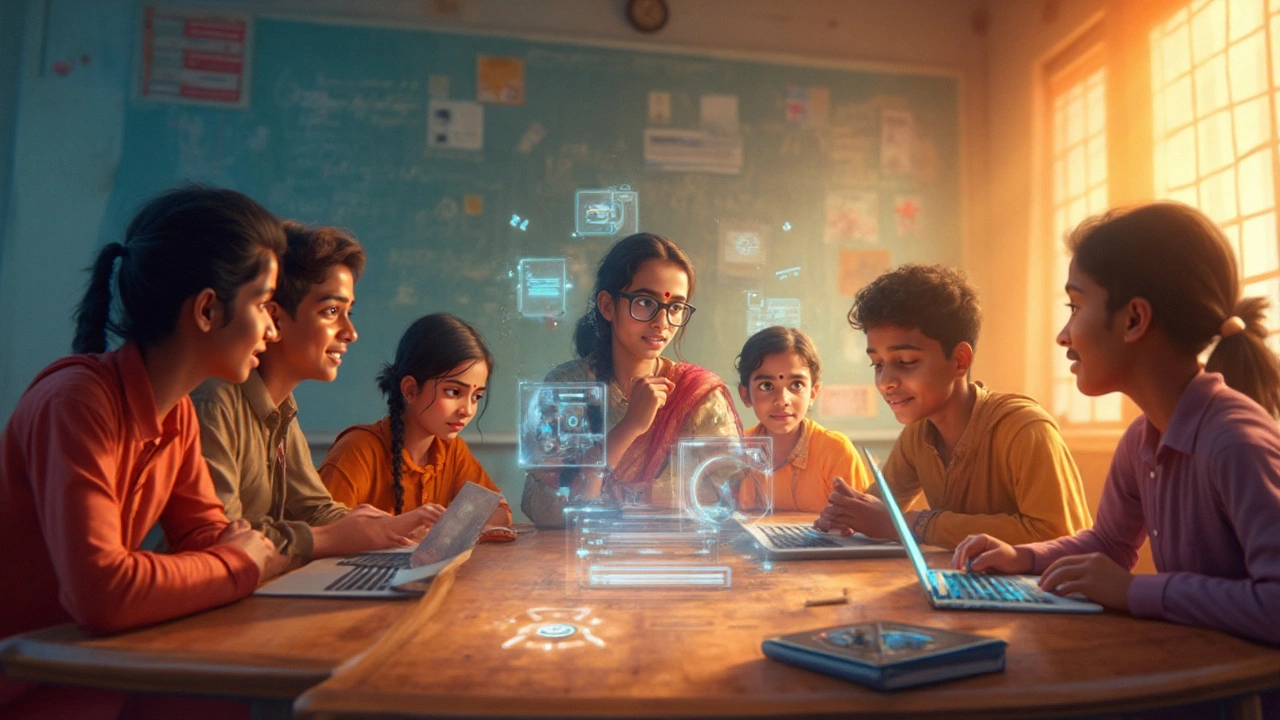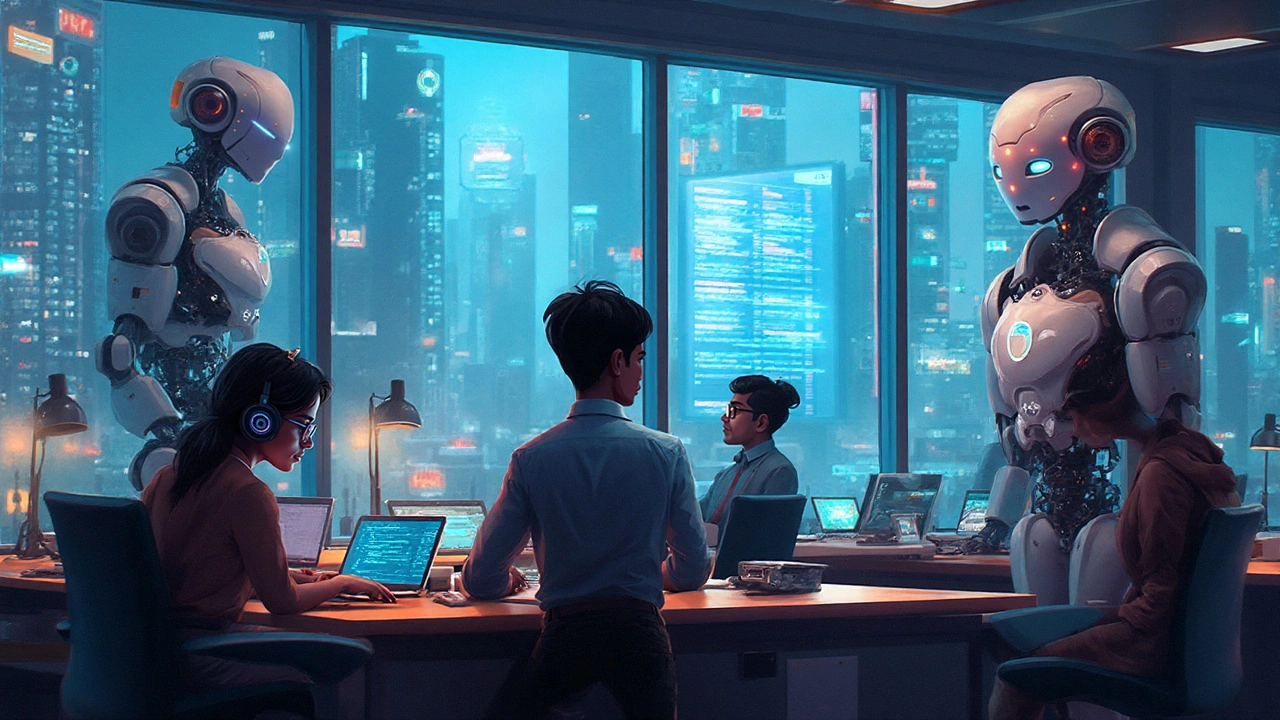If you told a room full of coders in 2005 that a computer could spit out passable code from plain English, you’d get some good laughs, maybe a few nervous side-eyes. Fast forward to today—my cat Luna has watched me argue with GPT about JavaScript bugs more than with any real-life colleague. It sounds almost sci-fi, but the idea of artificial intelligence one day making generators like me--and every other programmer--obsolete, isn’t so far-fetched anymore. So, will AI replace programmers in two decades? Or is that just one of those wild Silicon Valley prophecies that never really happens? Time to cut through the myths, fears, and hopeful claims, with both eyes wide open.
AI Progress in Coding: The Real Story
When people first saw Codex—the model behind GitHub Copilot—cranking out code from basic chat prompts, jaws dropped all over Reddit. It wasn’t perfect, but it was fast, and sometimes it even worked like magic. Then came Gemini, ChatGPT’s older cousin, and Meta’s Code Llama, all racing to give us developers a digital sidekick. Could these models handle full-stack builds on their own? Not quite. But they shifted the perception of what “automation” could mean for coding as a job.
Most AI code tools today shine in boilerplate generation, unit tests, and documentation. They speed up the busywork—the same drudgery that usually eats a coder’s Friday night. So yes, Copilot and its friends can churn out React components and fix typos like a hungry intern, often faster than any human. In 2023, a Stanford study measured that junior developers using paired coding AIs finished simple programming tasks 30-50% faster. But, and here’s the big but—these tools stumble when the tasks get complex, need context, or drift outside of the examples they were trained on. Luna may never care, as long as her food dispenser works, but actual users notice when an AI-generated function spectacularly misinterprets business logic or misses an edge case that isn’t in some open-source repo.
If you look under the hood at today’s production apps in finance, ecommerce, or healthcare, they’re still written, debugged, and maintained by armies of humans. AI isn’t building Stripe on its own, or rewriting the NHS Booking Service over a sleepy weekend. Bugs, compliance, and bespoke architectural choices remain way above what today’s large language models can problem solve. And remember, coders have spent decades learning how to talk to computers. Training an AI to write code is one thing; training it to not break a bank, go off the rails in a life-or-death app, or be readable by humans is a different beast.
One more reality check: AI coding tools learn from public codebases. If all code was written by AI, who’s uploading new creative or innovative examples to train on? There’s a cycle—humans invent, AIs absorb, and remix. Break the loop, and you risk AIs repeating the same mistakes or limitations endlessly.

The Skills You Need in an AI-augmented Coding World
People love asking if junior devs need to just give up now and become dog walkers instead (no offense, Luna). It’s easy to miss the nuance: AI will reshape what programmers do, and how they do it, but that doesn’t mean the whole role goes extinct. Instead, think of coding as moving one step higher up the ladder. The more grunt work gets automated, the more valued humans become for problem-solving, creativity, and judgment.
Picture this: you enter a job in 2030, and every company has its own AI code bot, tailored with custom datasets and legal guardrails. You’re not just typing out endless loops; you’re designing how systems should work, explaining context to an AI, and reviewing what it spits out, like an editor checking a junior’s draft. For high-consequence software—think banking APIs, air traffic, electric grids—people with deep context and responsibility still call the shots. An AI can speed things up, but humans decide what matters, what’s risky, and what aligns with business goals. Experienced engineers will spend more time on systems architecture, code quality, critical debugging, and making ethical calls.
If you want to future-proof your career, focus on understanding big-picture logic and communication. Learn how to write prompts that get the best code out of an AI. Develop taste—knowing good design from a hacky workaround, spotting subtle bugs, and thinking about ethical use and data privacy. Practice reviewing and debugging AI output, not just writing code from scratch. Get comfortable collaborating with machines as well as humans.
Real-life case—software shops already using Copilot report their senior devs spend less time repeating themselves and have more mental space for complicated stuff. Teams are building Proof-of-Concepts in hours instead of weeks. Junior devs get thrown into the deep end faster, but still need mentors to teach critical thinking. Trust me, the teams that stumble are the ones that rely too much on AI “black boxes”. Whenever quality drops or something breaks and no one knows why, that’s when management remembers why human coders are still on payroll.
People with interdisciplinary smarts—knowing both coding and the industry they’re building for—will stay in demand. That’s as true for fintech, healthtech, or even creative coding gigs in the music industry. Programmers with good “people skills” who bridge AI’s output and human needs, can write their own tickets for years to come.

Are Coding Careers Still Worth It, or Hopeless?
The internet’s full of hot takes: “Programmers will be extinct by 2045!” or “AI could never do what humans do!” The real answer lands somewhere in the messy middle. AI will keep swallowing up more of the tedious bits—just like compilers did in the 1950s, or when visual IDEs arrived in the ‘90s. But every new tool raises the floor. Sure, more businesses will be able to ship basic apps with fewer people, faster. Entry-level jobs may get squeezed, and “hello world” coding may become less valuable. That’s tough if you’re just starting out, but it’s no reason to panic.
The upside? New fields open up every time old tasks get easier. No one builds Excel anymore, but millions of jobs depend on what people create with it. AI-assisted coding could free up time for building smarter apps, exploring new hardware, or inventing whole new business models. Expert coders aren’t going away—they’ll just adapt to directing the machines, rather than being replaced by them wholesale. The best programmers might look more like project leads, context-holders, and full-spectrum problem solvers than line-by-line keyboard warriors.
Tech isn’t a static game. Twenty years ago, “frontend developer” was barely a job description, and now it’s a massive career lane. Entire frameworks, stacks, and roles could fade away or explode in popularity depending on what AI makes possible—and what it messes up. If you want to future-proof yourself, keep learning. Dive into design, product management, cybersecurity, devops, or any area that requires judgment, creativity, and adaptability. Follow the tech, don’t just chase the code. If you see AI taking over what you do, figure out what you can do better with its help, or move to parts of the stack where human oversight still matters.
So, will programming as a career vanish within twenty years? If my cat Luna is still crashing Zoom calls in 2045, I’d bet she’ll be snoozing next to me, not some “AI overlord.” There’ll be fewer pure keyboard monkeys, sure. But people who love tech, adapt fast, and see the big picture will always find interesting problems to solve—with or without an AI coding assistant by their side. In tech, it’s never really “robots or bust.” It’s people and machines, side by side—and the real winners are the ones who learn how to get the most out of both.
